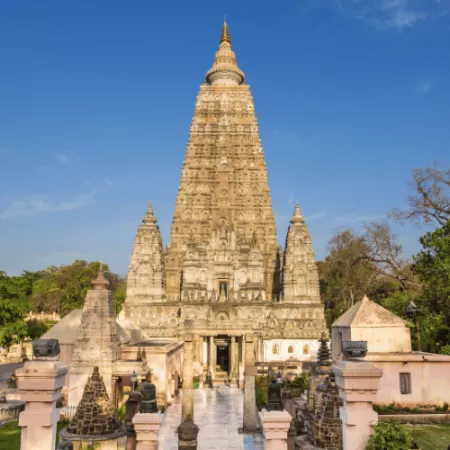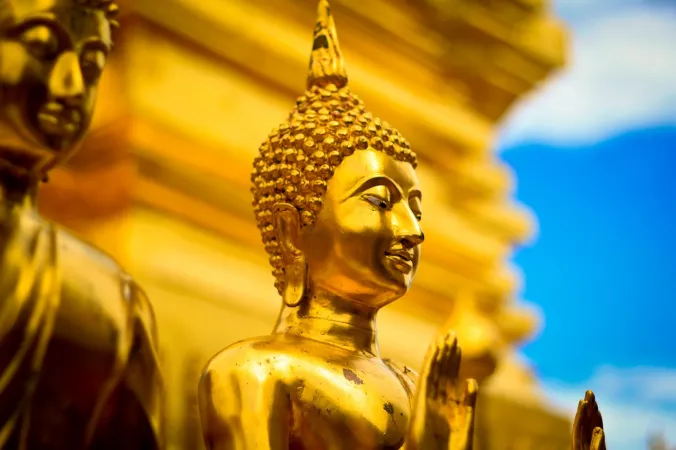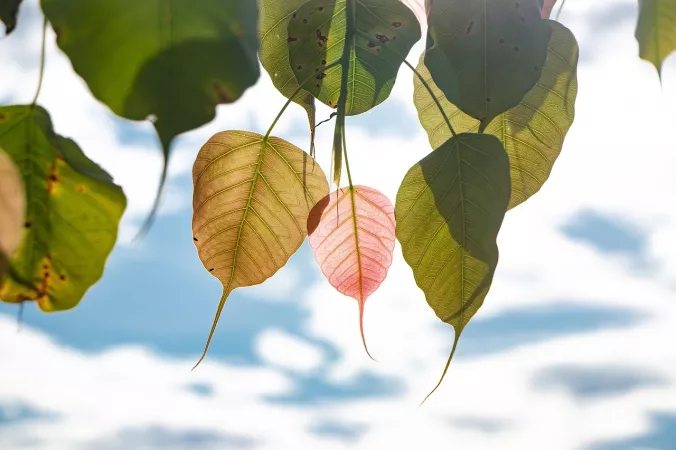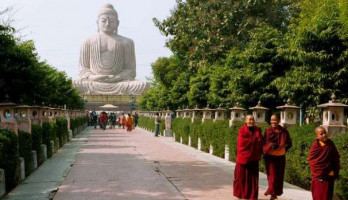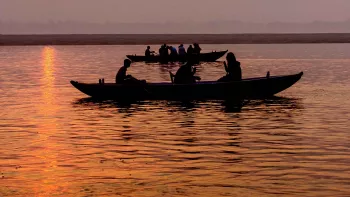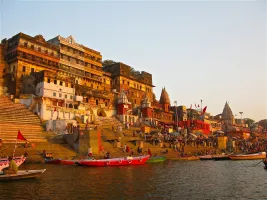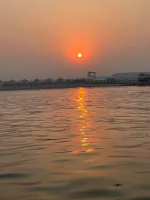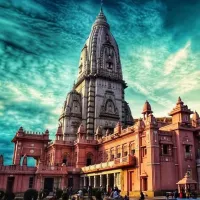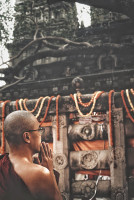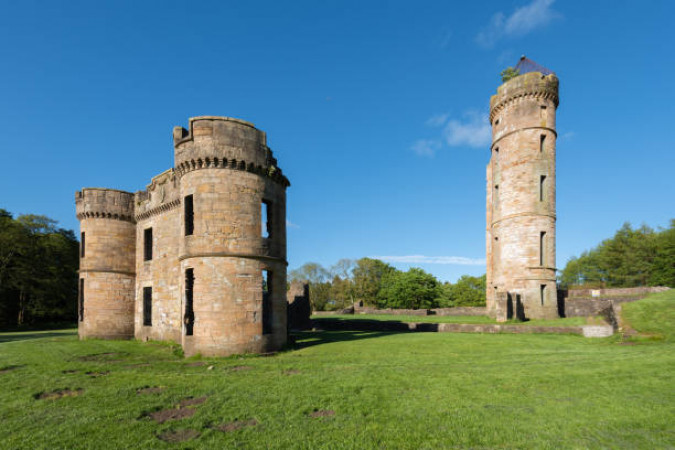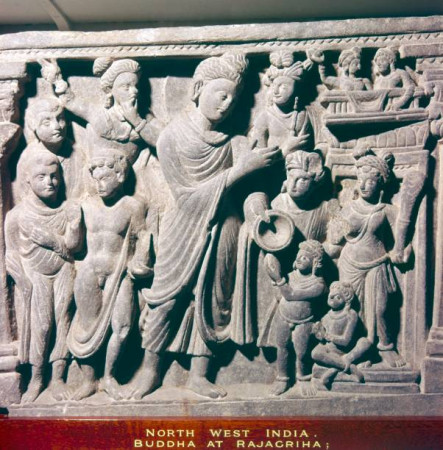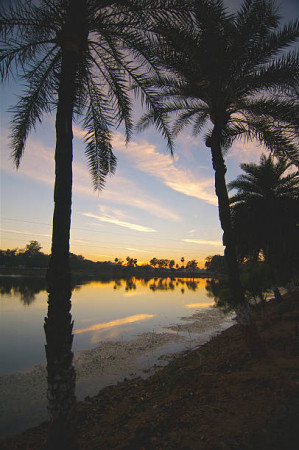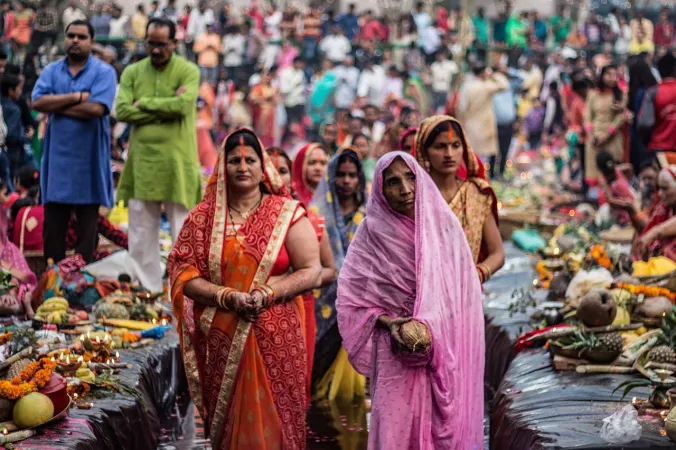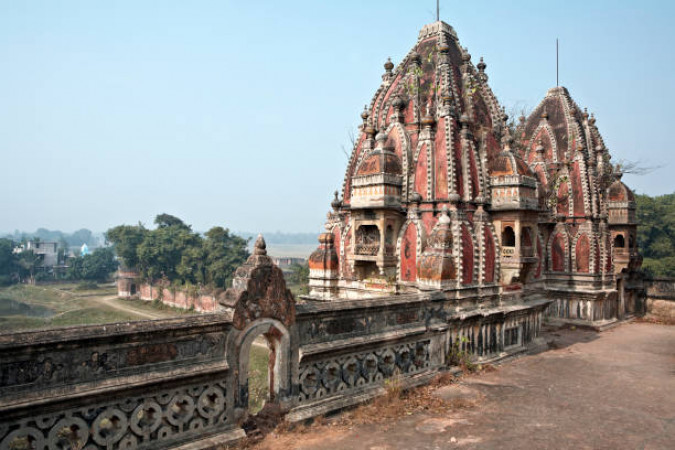Bodh Gaya Travel Guide
Bodh Gaya, located in the state of Bihar, India, holds immense historical and cultural significance as the place where Lord Buddha attained enlightenment under the Bodhi tree. This sacred pilgrimage site attracts Buddhist pilgrims from around the world, making it a hub of spiritual energy and tranquility. Bodh Gaya is famous for being the epicenter of Buddhism and for its ancient temples, monasteries, and meditation centers.Top Attractions in Bodh Gaya
1. Mahabodhi Temple 2. Bodhi Tree 3. Great Buddha Statue 4. Sujata Kuti 5. Dungeshwari Cave TemplesBodh Gaya is Famous for
Spiritual enlightenment and the birthplace of Buddhism.Top Attractions in Bodh Gaya
- Mahabodhi Temple - Bodhi Tree - Great Buddha Statue - Sujata Kuti - Dungeshwari Cave TemplesWhat's Great about Travelling to Bodh Gaya?
- Spiritual awakening and inner peace - History and culture enthusiasts - Seekers of meditation and mindfulnessWhat's Not So Great about Travelling to Bodh Gaya?
- Limited nightlife and entertainment options - Hot and humid weather during summers - Crowded tourist seasonsTravel Tips for Bodh Gaya
- Respect the local customs and traditions - Dress modestly when visiting religious sites - Stay hydrated and carry sunscreen - Arrange for a local guide for a more enriching experienceImportant Bodh Gaya trip information
- Ideal Duration: 2-3 days to explore the main attractions.
- Best Time to Visit: October to March for pleasant weather.
- Nearby Airports and Railway Stations: Gaya Airport and Gaya Junction Railway Station.
Top 2 Places to visit in Bodh Gaya
Per Person
10,800
*EXCLUDING APPLICABLE TAXES 5.0 Ratings
( 393 Reviews )
( 393 Reviews )
Per Person
19,000
*EXCLUDING APPLICABLE TAXES 5.0 Ratings
( 27 Reviews )
( 27 Reviews )
Per Person
11,650
*EXCLUDING APPLICABLE TAXES 5.0 Ratings
( 27 Reviews )
( 27 Reviews )
Per Person
16,800
*EXCLUDING APPLICABLE TAXES 5.0 Ratings
( 27 Reviews )
( 27 Reviews )
Per Person
17,500
*EXCLUDING APPLICABLE TAXES 5.0 Ratings
( 27 Reviews )
( 27 Reviews )
Per Person
13,500
*EXCLUDING APPLICABLE TAXES 5.0 Ratings
( 393 Reviews )
( 393 Reviews )
FAQ's on Bodh Gaya
Q1: What is the best time to visit Bodh Gaya?
The best time to visit Bodh Gaya is from October to March when the weather is pleasant and ideal for sightseeing. This period also coincides with many Buddhist festivals and events, adding to the cultural experience. It's advisable to avoid the summer months from April to June due to high temperatures. The monsoon season from July to September can bring heavy rainfall, but the lush green surroundings make it a unique time to visit for some travelers.
Q2: Do I need a visa to travel to Bodh Gaya?
Most visitors to Bodh Gaya will need a tourist visa to enter India, as Bodh Gaya is located in the state of Bihar. Ensure your passport is valid for at least six months beyond your intended stay. Check with the nearest Indian embassy or consulate for the most up-to-date visa requirements. Some nationalities may be eligible for an e-Visa, which simplifies the process for short stays. Remember to comply with all visa regulations to avoid any travel disruptions.
Q3: What are the must-visit attractions in Bodh Gaya?
Bodh Gaya is known for its significance in Buddhism and is home to several sacred sites. The Mahabodhi Temple, a UNESCO World Heritage Site, is the most prominent attraction where Lord Buddha attained enlightenment. The Bodhi Tree and the Great Buddha Statue are other important landmarks. Visit the Dungeshwari Cave Temples and Sujata Stupa for a deeper spiritual experience. Explore the Tibetan Monastery and the Archaeological Museum for insights into the region's history. Don't miss the tranquil setting of Muchalinda Lake for a peaceful retreat.
Q4: Is Bodh Gaya a safe place to travel?
Bodh Gaya is generally safe for travelers, but like any destination, it's essential to remain vigilant, especially in crowded areas and markets. Avoid walking alone at night and keep your belongings secure. While the locals are friendly and welcoming, be cautious of any scams or touts targeting tourists. It's advisable to respect local customs and traditions to ensure a smooth and safe travel experience. In case of any emergencies, know the contact details of the nearest embassy or consulate.
Q5: What is the local currency in Bodh Gaya and can I use credit cards?
The local currency in Bodh Gaya, as in the rest of India, is the Indian Rupee (INR). ATMs are widely available in Bodh Gaya, allowing you to withdraw cash easily. While larger establishments may accept credit cards, it's recommended to carry sufficient cash for smaller shops and local markets. Inform your bank of your travel plans to avoid any issues with card transactions. Money exchange services are also available in the town for convenient currency conversion.
Q6: What is the local cuisine like in Bodh Gaya?
Bodh Gaya offers a variety of culinary delights that cater to different tastes. Indulge in traditional Indian dishes such as dal (lentil curry), roti (flatbread), and sabzi (vegetable curry) at local eateries. Don't miss trying the famous Bihari cuisine, known for its flavorful spices and unique preparations. Savor dishes like litti chokha, sattu ki roti, and the refreshing sol kadhi. Vegetarian options are prevalent in Bodh Gaya, reflecting the local customs and preferences. Enjoy a cup of chai (Indian tea) or lassi (yogurt-based drink) as you explore the local food scene.
Q7: What transportation options are available in Bodh Gaya?
Bodh Gaya offers various transportation options for travelers to explore the town and its surroundings. Auto-rickshaws and cycle rickshaws are popular for short distances, providing an affordable and convenient way to get around. Taxis are also available for private and comfortable travel experiences, especially for longer journeys. Public buses connect Bodh Gaya to nearby towns and cities, offering a budget-friendly travel option. Car rentals and bike hires are available for those who prefer independent travel. Walking is a great way to explore the town on foot, especially around the main attractions clustered in the central area.
Q8: Are there any cultural norms or etiquette I should be aware of when visiting Bodh Gaya?
When visiting Bodh Gaya, it's essential to respect the local customs and traditions to have a harmonious experience. Dress modestly, especially when visiting religious sites, and remove your shoes before entering temples or monasteries. Seek permission before taking photographs of locals, particularly monks or worshippers. Greet people with a polite "Namaste" and be mindful of your gestures and language to avoid any misunderstandings. Avoid public displays of affection as this may not align with local norms. It's customary to offer donations at temples as a sign of respect. By being culturally sensitive and open-minded, you can immerse yourself in the rich heritage of Bodh Gaya and create memorable travel experiences.
Q9: I am a travel agent. How can I buy travel leads of Bodh Gaya?
Register yourself as a travel agent at agents.tripclap.com and then you can buy travel leads to Bodh Gaya once your account is approved. For more details contact our support team at +91-8069186564 or support@tripclap.com
